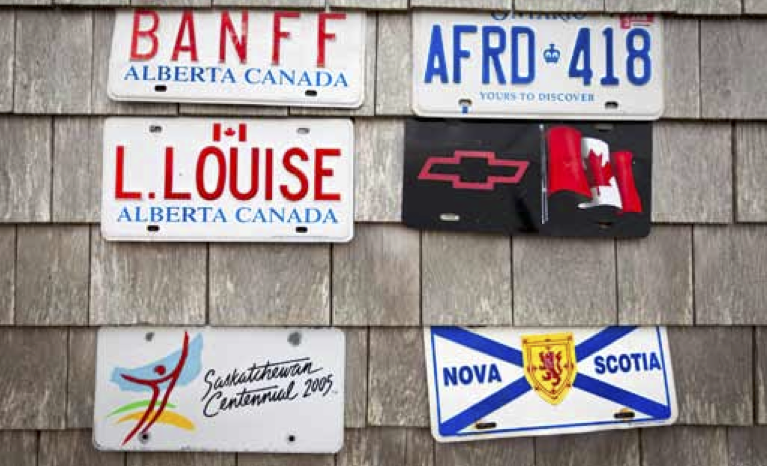Our comprehensive report on surveillance in Canada is available. Download it here.
June 2014
Is Your License Plate Personal Information?
- June 10, 2014

In 2011, the Alberta Court of Appeal concluded that for information to be about an “identifiable individual” under the Alberta Freedom of Information and Protection of Privacy Act, the person must be identifiable; in other words, the information must have a precise connection to an individual.1
Such information must be about the individual—that is, directly related to the individual—and not about property that the indivdual might own (such as a car). Some information is not inherently personal but becomes so because it is associated indirectly with an indvidiaul through ownership. Thus, in Alberta, a driver’s license number is personal information but a license plate number is not, even though, in Alberta at least, a license plate is connected to the vehicle and linked through a database to an individual.
What happens, then, when license plate numbers are automoatically photographed and idientified by automoate license plate recognition (ALPR) cameras? These devices use optical character recognition technology to automatically read license plates and then search that information through assorted databases. The information and privacy commissioner of British Columbia released a finidng on this subject in late 2012. She found that people do have privacy expectations associated with their license plates because while the number, on its own, is non-identifying, the common linkage between the number and identifiable information means the numbers should be protected.
Authorities seem to vacillate on whether license plate information is private or public. For example, some police organizations have taken the position that the photos taken of plates are not personal, which justifies collecting them. They argue, however, that the public should not be able to access the records that have been generated on the basis of these photos because they contain personal information. Even after the RCMP sent out a letter formally recognizing that the data collected by authorities’ scanning practices are personal information, the head of the RCMP’s scanning program and other Canadian police officers have continued to assert that because vehicle license plates are shown in public, there is no reasonable expectation of privacy regarding that information.2
This confusion obfuscates the political nature of wide-scale surveillance. When data collected are “nonpersonal,” it is relatively easy to convince the public and government oversight bodies of the appropriateness of data collection. But when surveillance captures “personal” information, then legal protections and normative concerns also arise, which could delay the deployment of such surveillance equipment. Whether a license plate is, or is not, personal data has become an inherently political question.
- 1. Leon’s Furniture Limited v. Alberta (Information and Privacy Commissioner), 2011 ABCA 94 (CanLII), http://canlii.ca/en/ab/abca/doc/2011/2011abca94/2011abca94.html.
- 2. Christopher A. Parsons, Joseph Savirimuthu, Rob Wipond, and Kevin McArthur, “ANPR: Code and Rhetorics of Compliance,” SSRN: Social Science Research Network, 4 September 2012, http://papers.ssrn.com/sol3 /papers.cfm?abstract_id=2141127, 12.





